People of all ages are addicted to gambling. Social status, upbringing, profession, hobbies and surroundings do not affect the likelihood of developing gambling addiction. Gambling has long been considered simply a bad habit, but then it was added to the list of mental illnesses, addictions that can and should be treated.
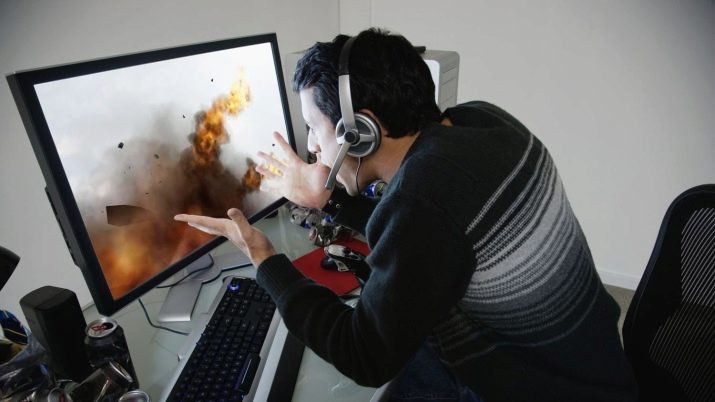
Features
Gambling in the broad sense of the word is called any pathological dependence on the game process. This applies to gambling, and video games, and games on the exchanges. Therefore, there are several names to indicate one problem - gambling, ludomania. Gambling - one of the most common human addictions in the world, she gives way to leadership only to such bad habits as alcoholism and dependence on drugs. But the catch lies in the fact that bad habits like to group, and therefore gamers often suffer from alcoholism and drug addiction.
Game addiction refers to non-chemical types of addiction. In medical terms, this is an addiction that is accompanied by a person’s all-consuming passion for the game. For a long time this was not considered a disease, but recent decades have forced doctors to reconsider their attitude to the problem. - the number of game addicts has grown several dozen times and it became clear that it is time to intervene in science and medicine. The prevalence of gambling addiction is assessed by WHO as epidemic.
There are new gaming devices, massive video games that millions of people are drawn into.Measures to limit slot machines and casinos help, but not as good as it seemed at first - gamers moved to the Internet and free gaming zones where gambling is allowed, and illegal casinos and gaming halls flourish in terry colors.
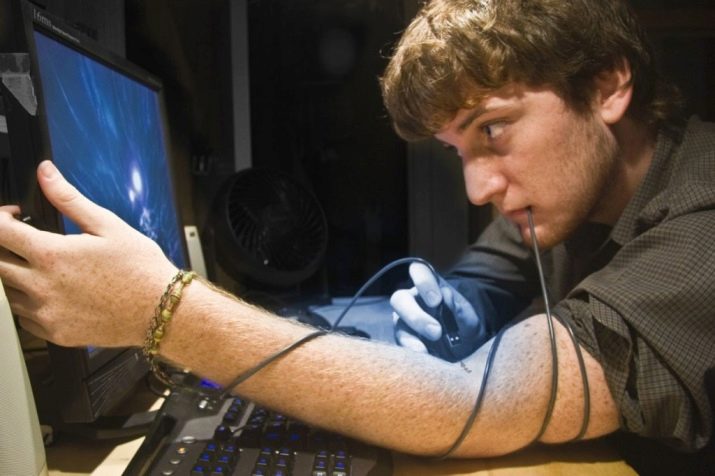
Gambling has changed, now material gain is not the main incentive for a player. Dependence also develops on games that, in general, do not imply a gain - the process itself drags people.
The gamer is significantly limited in his worldview. His area of interest is very narrow, he is almost always in an anxious state, the coordinate system of values important for normal human life is shifting - family, children, health, professional implementation go to the second, third and fourth planes. The first place in the life of a gamer is the game.
Those who do not consider gambling addiction a disease are mistaken. Gambling is officially listed in the ICD-10 as a mental illness under the code F 63.0. The fact that this is a real disease is recognized by doctors around the world.
The game is an important cognitive process that helps children learn the laws of the universe, and therefore every person has a love of the game as a whole. The peculiarities of gambling addiction are that a person experiences a certain “imbalance” - a game that cannot cause harm in itself, becomes the most important component of life. The fact is that at the time of the game a person can feel strong emotions that are inaccessible to him in everyday life. Therefore, to play something after a working week, for example, is not forbidden for emotional "discharge". And many, indeed, manage to even occasionally play gambling without getting involved in them to a pathological dependence.
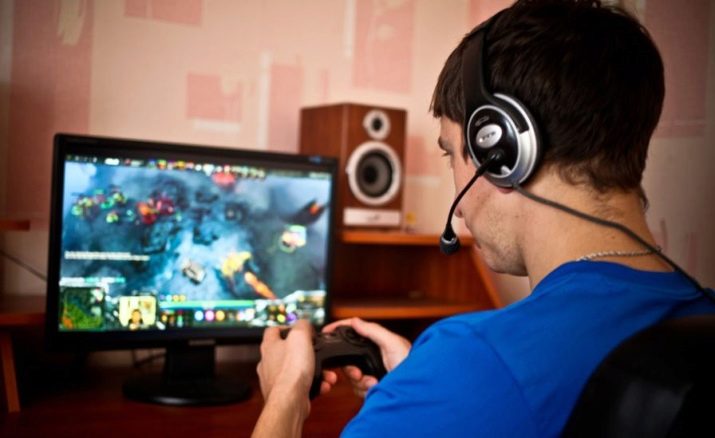
In the case of gamers, everything is different. They are unable to overcome the painful addiction, which displaces all other desires and values, devaluing the very meaning of human life. The mechanisms of gambling addiction are very similar to the mechanisms of alcoholism - a person cannot suppress an irresistible desire within himself, feeling the cancellation syndrome on a physical level. He is unable to criticize himself, his actions, does not control them and cannot sensibly assess the environment. To play a person in an attack of uncontrolled desire, sits down at any time, not soberly assessing his time and financial capabilities, without looking back at the needs of the family, his own needs. The game for him ends when the attack passes. And until the next attack, he is able to critically look at his actions. And the next attack is bound to happen. Therefore, gambling is considered a chronic mental illness, prone to relapse and progression (seizures become more frequent and stronger over time).
No matter how great the willpower of a person is, he is unable to exert forceful influence on his impulses to be included in the gameplay.
Sociologists have noticed that in the most prosperous countries the level of gambling in adults is lowerthan in countries with unstable economies and other problems (0.4% versus 7%). For example, in Canada the prevalence of gambling addiction does not exceed 1.5%, and in Russia and in the former CIS countries - from 3.5%. Children and adolescents, regardless of country of residence, suffer from gambling twice as often as adults.

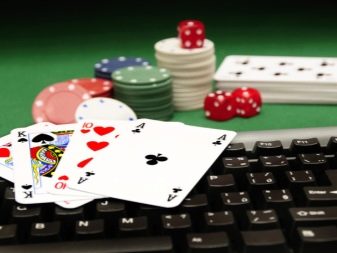
Varieties
Game addiction has several forms. All of them are dangerous not only for health, but also for human life. The classification is based on the type of games.
Material Incentive Gambling
These are casinos, slot machines, online casinos, card games, roulette and so on. Such games have an ancient history. But the first casino was opened in Venice in the 17th century. Since then, gambling houses have spread throughout the world, and now are present in the virtual space.
Gambling is attractive to a person in that they allow him to experience such a passion that he simply has nowhere to get in his everyday life. In addition, an important factor provoking the development of addiction is the prospect of getting rich, earning money, making easy money or other values.
Gambling takes first place in the number of dependent players in the world.
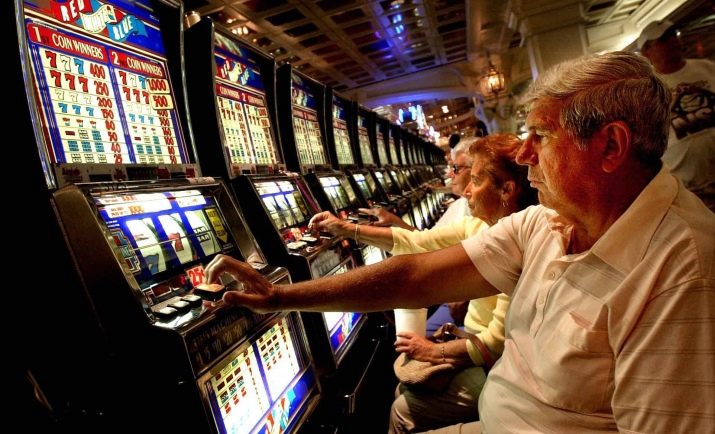
Computer games and games online
The gaming industry has offered humanity more than just the opportunity to win money. She offered him an alternative new world in which everyone can become what they want. Is this not a dream, not a utopia? As a result the number of video game addicts has grown rapidly in recent years, and today this type of addiction is almost as common as pathological addiction to gambling, and material reward is no longer an incentive for players.
According to doctors and scientists, network games, especially MMORPG, cause the strongest dependence. After several cases when people (including children) were dying of exhaustion, lack of sleep during a multi-day game. WHO recognized this type of dependence as a disease and included it in ICD-11 (the classifier will replace ICD-10 in early 2022).
This type of dependence develops due to dissatisfaction with the real world, instability of the psyche, desire to be realized in the absence of the ability or desire to do it in reality. In virtual space, it is easy to be a hero, not die, rise, conquer, overcome, reach heights and even rule galaxies. At the same time, the creators of the games took care of the reward as an incentive - most games have a cycle that provides the player with some intangible rewards for completed levels and achievements, and this encourages the person to continue the game process.

Modern game addiction researchers claim that pathological mania can develop due to excessive enthusiasm for any game. In 2018, a list of games was published that most often cause severe mental dependence, which needs qualified medical care:
- Dota-2;
- Madden;
- Grand Theft Auto V (GTA);
- Minecraft
- EverQuest;
- The Sims;
- World of Warcraft
- Pokemon;
- World of Tanks.
This list is far from the most complete. New games appear almost daily, gaining millions of fans, among whom there are certainly those who have a persistent chronic dependence.


Lotteries, sweepstakes, financial exchanges
It can be argued arbitrarily that such hobbies are not a game, not addiction, and not a disease. But the fact remains. Excessive enthusiasm for lottery tickets, sports betting, playing on the difference in currencies or the value of shares is also considered a form of gambling.
The organizers of lotteries and sweepstakes are not at all concerned about the financial condition of the players. They care about their own profit. But, oddly enough, belief in miracles makes playing lotteries and betting people. Even in childhood, we are told tales in which something happens in a miraculously inexplicable way, and the main characters, who have experienced hardships and sorrows, suddenly become happy and rich (the tale of pike and Emelya, the lamp of Aladdin and others).
More often than not, rich people suffer from this type of addiction. Chronic pathological "lottery" - these are people whose standard of living is below average, according to sociologists. They are ready to give the last penny for a lottery ticket, hoping to find their "Aladdin's lamp" there. Roughly the same is the average portrait of the regulars sweepstakes.
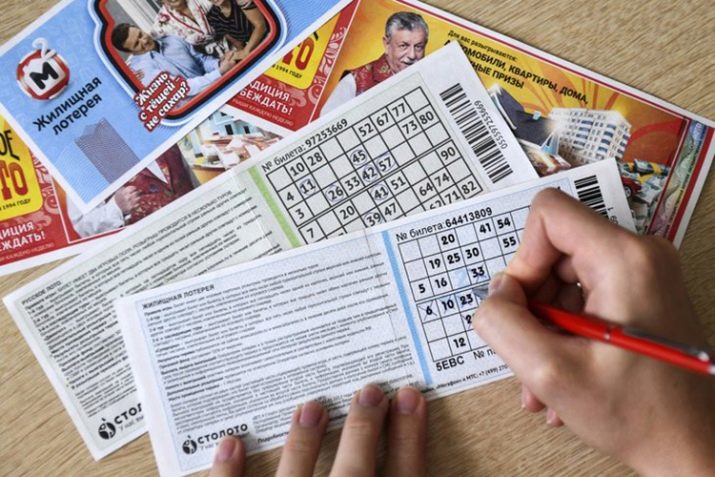
Speculation in the foreign exchange and stock markets requires certain skills. And here the dependence develops in certain people - well versed in mathematics, probability theory, politics, economics, quite educated. In fact, this is an ordinary gamble, although they represent it as a “work of the mind”. Strange as it may seem, not so much depends on a person and his mental abilities in the stock market.
The situation is aggravated by the fact that today many such sites on the Internet not only offer people free education, but are even ready to provide loans for further rates. Very quickly, the player falls into a heavy financial bondage, to get out of which he is again offered with the help of re-lending and further play. Debt is growing, increasing the likelihood of complete bankruptcy and all the negative consequences arising from this, including serious mental disorders, maladaptation in society and attempted suicide.

Signs
The behavior of the gamer is quite characteristic. In general, it differs little from the behavior of an alcoholic or drug addict, since both in chemical and in non-chemical addictions the symptoms in humans are approximately the same.
The circle of interests of a person with gambling is narrow. And even if earlier he was fond of reading, traveling, talked a lot, participated in archaeological excavations and took fencing lessons, then with the onset of gambling addiction all interests lose their attractiveness, only interest in the game remains. This is easy to understand by talking to a person - a particular pleasure is the discussion of the details of the game, his experience, subtleties and secrets. Other topics that are not related to the gameplay and everything that is directly related to it are perceived with irritation or extremely inattentive.
The gamer ceases to communicate with his old friends, ceases to pay attention to family members and himself, may forget to wash, eat, have lunch. He neglects the duties and deeds that require his participation, since all this distracts him from the gameplay. Whenever possible, he plays. If there is no possibility (they turned off the light, there is no Internet, the computer broke down, and so on), the gamer is very nervous, he is annoyed, he can break down on relatives, scream. At the same time, he can show the wonders of ingenuity only in order to repair the computer as soon as possible, to repair electricity, so that the game process becomes possible again.

If circumstances require to interrupt the game, after a short time a person begins to experience severe anxiety and anxiety, he needs to return to the game. This craving is as strong as the craving for an alcoholic to a glass of alcohol, a drug addict - to the next dose of a prohibited substance. Doctors noticed that 95% of gamers with experience of withdrawal symptoms in the event of depriving a person of the opportunity to play are identical to the clinical symptoms of withdrawal symptoms:
- mood sharply decreases;
- headache of different intensity appears;
- sleep is disturbed, insomnia appears;
- it is extremely difficult for a person to concentrate on something, to concentrate his attention;
- “gaps” appear in the memory, more often in the short-term (a person cannot remember what he ate for breakfast in the morning, what he did last night);
- muscle pain and tremors of the limbs and lips may appear.
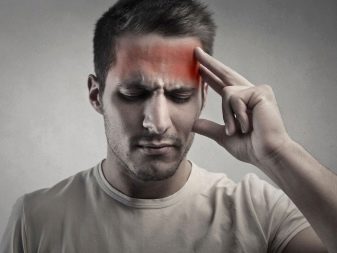

Having gained access to the game, a person with such a disorder cannot stop independently after a series of losses or after winning. During periods of "enlightenment" the gamer understands perfectly well that his hobby harms him and others, and therefore he can make decisions for himself never to play again. But this decision almost never comes to life, because there are a lot of reasons why a person sits at a computer again and again or goes to a gambling establishment.
Psychiatrists consider gambling addiction to be a very complex and persistent violation, because it is constantly supported by special thinking errors. Tactical errors contribute to the emergence of a state close to the state of trance. In him, a man is sure that he can do anything, that “today he’ll be lucky, I know” that “only winning will help me repay debts.”Strategic irrational mistakes in the process of thinking provoke a person’s positive attitude towards his addiction - he understands that he is addicted, but justifies it with a lot of reasons. Such beliefs usually sound like this: "Money is everything, they open any doors," "Everything is bought and sold." Moreover, the man, of course, is not satisfied with what he has, but constantly dreams of how his life will change and he himself, when he finally succeeds in breaking the big jackpot.
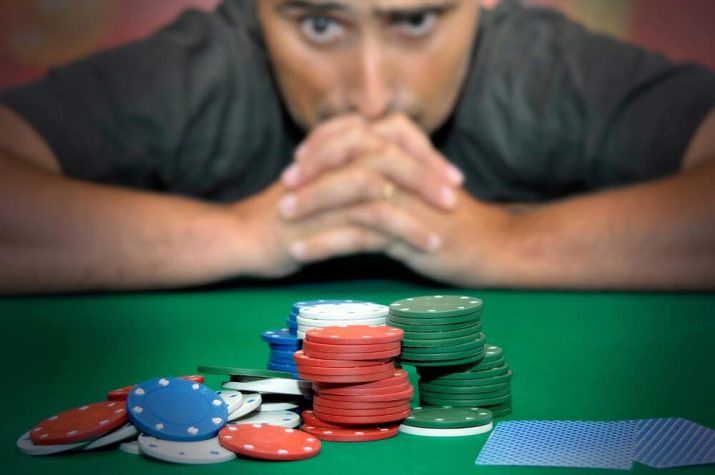
The behavior of the gamer is always cyclical. It is quite predictable, it is enough to know the sequence of phases and their symptoms.
- "Bright period" (period of abstinence) - a person refuses to play, may recognize the inappropriateness of further enthusiasm for the process, feel guilty.
- The period of fantasies and projections - thoughts about the game appear, their intensity increases, anxiety, distraction begins to appear. Mentally, a person already plays and wins, scrolls the event of his victory in his head. During this period, increased sexual desire is possible, there is a need to do something, and often the gamer loads himself with completely aimless work “for the sake of work”.
- Decision period - thoughts about the game reach an obsessive nature, there are signs of depression, an irresistible emotional attraction. The addict can break down, scream for no reason, he is very annoyed by the little things. The gamer at this stage is looking for a reason to play.
- Refusal period - a very dangerous period when a person experiences an illusion regarding his willpower. It seems to him that he was able to defeat the craving to play one more time. This is just an illusion, a deception. The addict relaxes somewhat and systematically enters the next phase.
- Implementation period - received a salary, quarreled with relatives, a lot of free time appeared. The reason may actually be any or it may not be at all. The solution is being implemented. A man enters the game. The trance state described above appears (on average, it can last from 4 to 15 hours). He is happy, he believes in his strength, he experiences strong emotions.
- Period of return to reality - occurs immediately after the emotional tension begins to subside. A person is aware of what happened, and cannot explain to himself why this happened again. He is depressed. After this comes repentance, regret, and the “bright period” begins again.

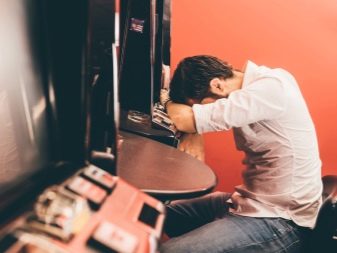
Everything is repeated in that order. Over time, each period is shortened. The longer the addiction is maintained, the shorter these periods are and the stronger the addiction. When you become addicted for more than six months, a person begins to lie a lot and without much benefit, conflicts increase, resentment, empathy decreases (the gamer loses his ability to empathize with other people), and a tendency to criminal and criminal actions appears. Efficiency decreases, memory worsens.
Personality degrades both externally and internally. External manifestations - sleazy appearance, dirty clothes, unkempt hair, hands, face.

Causes of occurrence
Why gambling develops in children, adolescents, adults, it’s difficult to answer unequivocally. There are many points of view, scientific concepts. Experienced psychiatrists believe that they are all more or less affected by the likelihood of developing addiction: this is stimulation with a possible gain, and the errors of the thought process described above. People with an unstable psyche, addicted and even creative people, very impressionable people, anxious and insecure in the real world, are more susceptible to the development of gambling addiction. Since this description is suitable for at least half of children and adolescents (due to age-related characteristics of the psyche), the prevalence of gambling among them, for obvious reasons, is several times higher than among adults.
The prerequisites for the development of the disease can be laid in childhood, and can be acquired later. Experts believe that the likelihood of pathological dependence is higher for those who are used to spending leisure time at card games, even if they don’t play for money in the family.
A positive and even “heroic” image of players is found in films, books, and the emotional perception of such images can also become that invisible countdown point that sooner or later will lead a person to the game room or make him sit down for a video game.
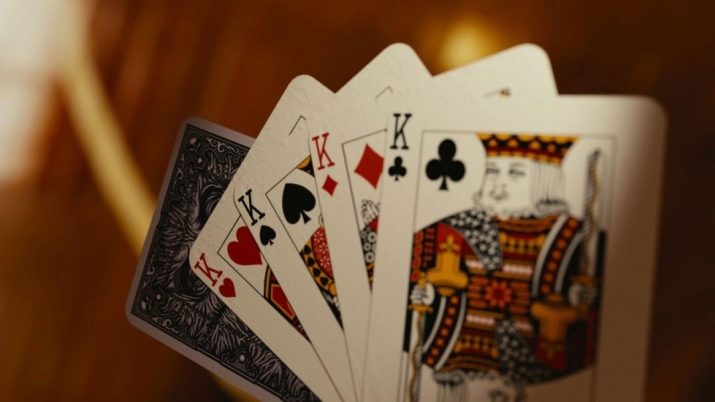
For most children and a considerable number of adults, the existence in the virtual world seems easier, more attractive, interesting than ordinary everyday life, in which neither the dragon is killed nor the princess is stolen. You can repeat as much as you like to a teenager or adult about the negative aspects of gambling addiction - debt, loss of money, respect, family, friendship, communication, your own "I". All this will invariably remain beyond the perception and attention of a person predisposed to games.
If you try to explain gambling in terms of biological, biochemical and physiological processes, then the cause of the formation of dependence is the malfunctioning of the so-called "pleasure center" in the brain. Memories of the game atmosphere, of victories and triumph cause activation of this part of the limbic system. In normal mode, this center of the brain ensures that a person will experience pleasure by quenching thirst, eating, having sex, that is, with natural needs. In the case of gambling addiction, the pleasure center “gives a system malfunction” - the game process begins to give satisfaction, at that moment each time the body will release neurotransmitters that trigger reactions similar to the reactions of an alcoholic or drug addict to a glass of alcohol or a dose of stupefying substance.

Who risks getting into the ranks of gamers:
- people who have received improper upbringing in the family (too strict or overly tutelary);
- people whose parents or acquaintances played, play and do not hide their addiction;
- those who, from childhood, are used to spending free time exclusively at games (any);
- people suffering from materialism - pathological approval of material values, things, the desire to possess them;
- people who are jealous of the financial condition of others, the financial situation of outsiders;
- children and adults, prone to revaluation of values, not having their own clear position in life;
- children and adults prone to depression, anxiety disorders.


Stages
In 1984, the researcher of mental disorders in gamers R. Custer He proposed to distinguish several stages of this dependence:
- winnings;
- Losses
- disappointments.
In the first stage, the gamer plays infrequently, and sometimes, generally, rarely. It is noteworthy that he often wins, and therefore in his mind there is a primary erroneous attitude - that he is literally omnipotent and incredibly lucky. Imagination is played out, creating rainbow pictures of a comfortable and beautiful future. Rates are rising (time for computer games is increasing), at this stage, real investments in online games are possible. Optimism rolls over, and a person, without suspecting it, is already dependent.

In the stage of losses, a person begins to play in a concentrated manner, often in solitude, he loves to boast of his victories and wins, his luck, and in moments of bragging himself believes in what he says. At this stage, he already thinks and reflects mainly only on the gameplay. It is already impossible to stop, a lot of lies appear in a person’s life, he devotes less time to friends, family and work. A personality change begins - shame disappears, irritability appears, a person quickly gets tired, doesn’t want to communicate, if it’s a matter of gambling addiction, it is at this stage that debts appear and refusal to pay for them.
The stage of disappointment is associated with the aggravation of the degradation process. Personal reputation, professional duties and relationships with loved ones, in fact, cease to excite the gamer, and the time he spends on games increases even more. Sometimes he is tormented by conscience, but he does not necessarily find the cause of his troubles in himself, but in those around him, he plagues them with unfounded accusations and hatred.
At this stage, a person can withdraw into himself, become isolated, begin to use large quantities of alcohol, drugs, break the law. According to statistics, up to 14% of gamers at this stage are trying to commit suicide attempts.
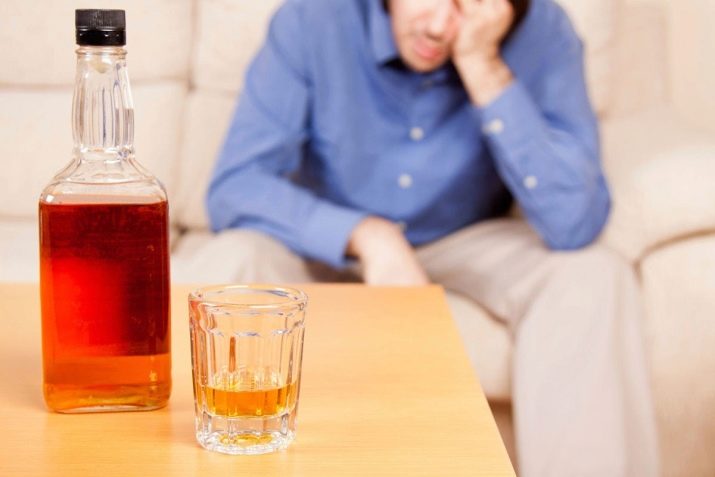
In order to better understand why the gamer is doing this and not otherwise, why he can’t just take and quit his addiction, you should know that each phase of the game cycle (abstinence - projections and thoughts - making decisions - refusing decisions - implementing - disappointments) their own behavioral and physiological syndromes are characteristic, which in many respects determine the sequential development of the stages.
- When attracted to the game, the addict focuses on everything related to the gameplay. At the physiological level, vegetative reactions can be observed - changes in blood pressure, flushing, excessive sweating. In the psyche, initial changes occur, the so-called ideational disturbances, accompanied by obsessive thoughts about the game.
- Trance syndrome, which occurs during the implementation phase of the decision, may be accompanied by increased pressure, pressing pains in the heart. Rational thinking is lost. A surge of strength appears. May last up to half a day.
- At the stage of winning, the addict experiences a syndrome, which is called - the syndrome of gain. It can last from a couple of hours to 1-2 days. He is associated with even greater euphoria, self-confidence.
- In the stage of losing, each syndrome after the defeat lasts up to two days and is manifested by anxiety, anger, resentment, aggression. It is at this moment that the gamers become superstitious - they can ask higher powers for help, pray, conduct rituals “for good luck” that they understand.
- In the stage of disappointment, a feeling of emptiness, fatigue prevails. Against the background of depression and sleep disorders, the most sad consequences are not ruled out.
Knowing what cycles a person with a game addiction goes through before a game, relatives and friends can quickly learn to understand what will happen next, what actions and actions a dependent relative will take. This knowledge can be used in the prevention of attacks, suicides.
As well as game stages and phases are important for the treatment of gambling, as it is based on a certain effect on a person in different phases of his “game life”.


Treatment methods
Despite the fact that it is not difficult to recognize gambling, the doctor must make the appropriate diagnosis. And for this you need to decide on the main thing - go to a medical specialist and ask for help. The gambler and his relatives should do this. Since the addict is not able to evaluate everything objectively, often the doctor receives important information from relatives or friends to determine the stage and depth of the addiction.
You can get rid of gambling addiction at home, but the likelihood of a “breakdown” when a person is in the usual environment is higher, and therefore it is recommended to treat gamers in a psychiatric or narcological hospital. It is in the interests of relatives not to insist that the addict be released home after treatment is prescribed - it is almost impossible to control the craving for the game, and the gamer cannot critically perceive himself and reality. Therefore, it is stationary conditions that are optimal in order to defeat addiction.
To cure a gamer, you need a comprehensive therapeutic approach: taking medication and continuous concomitant psychotherapy.The methods that are used to eliminate addiction are numerous - this is cognitive psychotherapy (with a change in incorrect attitudes, those same “mental system errors”), and rational therapy (with the correction of thinking errors), analytical exercises (with an impact on the unconscious), as well suggestive and hypnosuggest psychotherapy (wakefulness, trance suggestion sessions and hypnosis treatment).
It is important to practically re-teach a person to perceive reality, build and maintain relationships with others. The psychology of this dependence is very multifaceted, and therefore the impact on the patient is multifaceted.

The goal is considered to be achieved if the patient changes attitudes to more real ones - understands that you need to work, study, achieve goals yourself, and not rely on some kind of ephemeral luck, understands that he himself is the master of his life and is able to achieve any heights in it not through gambling or virtual reality, but through their knowledge, skills, talents, abilities.
Psychotherapy applies individual and group. Work in a support group is very important, because an addict, using the example of others, can see his problem “from the outside”. To eliminate sleep disturbances, anxiety and irritability, at the same time as a psychotherapeutic course, a course of sleeping pills, powerful sedatives is prescribed. If the gamer enters the hospital already in the stage of disappointment, with severe depression and suicidal thoughts, he is additionally prescribed antidepressant drugs. In attacks of aggression, tranquilizers can be prescribed in a short course.
After discharge from the hospital, the patient continues to be monitored by a psychiatrist or psychotherapist, he is recommended to visit a support group, if necessary, consult a psychologist, psychiatrist, taking prescribed medications.


Many people think that there is a quick technique for coding gambling addiction, that the doctor will tell the patient a few words under hypnosis or make some kind of injection - and everything will go away as it was. There are no such methods. What people call coding is a complex of psychotherapy with medical support, and the treatment is almost always quite long. How successful it will be depends on how much the addict is ready to accept help. You can cure addiction, you can fight it, but only if the patient has his own motivation. If upset relatives forcibly took him to the doctor, and he does not intend to cooperate with the doctor, then the likelihood of effective treatment is almost minimal.
A lot of things in the end depend on the relatives, friends and family of the gamer, on their proper attitude and behavior in this situation. First of all, they must understand that gambling is not a bad behavior, but a disease. And therefore, no lectures on how to live correctly, the situation can not be corrected. Tantrums, screams, threats, blackmail will not help. The world is distorted not only for the addict, but also for those around him. This effect is called the effect of co-dependence.
The correct reaction is not to indulge the addict's weaknesses, not to justify him and not to blame yourself for the trouble. That's right - to fight for their worthy existence and the material resources of the family. Relatives will have to take control of home accounting themselves and the entire family lifestyle. The requests, manipulations, threats and accusations of the gamer need only be answered with one firm and decisive refusal.
But leave him an “open door” - let him know that he’s always ready to help when he decides to end addiction. Try to convince him that the problem can be solved by contacting a medical specialist.

Possible consequences
Pay attention to the name of the disease. It has the word "mania." Like most mania, gambling addiction tends to progress and worsen if a person does not receive treatment.As a result, his life will be ruined, relations with relatives will be interrupted, friends and colleagues will leave, he will be left alone. Personality will be destroyed from within, degradation will affect all its sides. The biggest mistake of fans to play is that they are sure that a disease is dangerous for anyone, but not for them, since this will never happen to them, there will be no harm. So at the initial stage every gamer thinks so. There are no exceptions.
Excessive passion for gambling (casinos, slot machines, online casinos, exchanges and stock exchanges) leads to the development of mental illness, according to statistics, in 90% of cases. In varying degrees and stages, the disease will occur in 9 out of 10 players. Gambling addiction almost always leads to the collapse of a career - studies or work go by the wayside, a person discredits himself as a specialist, professional, student. Inevitable and financial problems - debts, loans that have nothing to pay, collectors, threats and courts.
It is not possible for the regulars of gambling establishments and online casinos to usually maintain warm family relations. Any patience of parents, partner, children has its limits, and therefore in most cases the relationship ends quickly - loudly, traumatically, with the breaking of dishes (person), divorce and division of property (if the bailiffs had not yet managed to arrest him).

In most cases, gambling addiction exacerbates existing problems with alcohol, and if they did not exist before, then they usually appear. Alcoholism or drug addiction aggravates the already unsightly position of the gamer. A violation of the law also seems quite logical: many gamers, in order to earn money for the game, commit crimes (robbery, fraud, murder). A long-existing addiction leads to the development of concomitant mental disorders, which at one moment can lead a person to serious self-harm or suicide.
Computer games, although they seem less dangerous, can cause no less list of negative consequences, especially for children and adolescents, whose psyche can not stand much earlier. This is fraught with the complete collapse of the personality, and then even psychiatrists will be powerless. It’s enough to recall how teenagers, who have forgotten who they really are, take up real weapons and go to their school or university, where they coolly shoot, cut, blow up not game bots, but real people, alive, with whom they were connected only yesterday warm and even friendships, love, affection.
The loss of “I” is the most dangerous possible consequence of addiction to video games.

Besides him, there are less tragic, but no less serious consequences. The gamer is losing contact with the real world, he has no friends, he has destroyed relations with his parents, relatives, acquaintances. He is not interested in the lives of others and the world itself. Adaptive abilities, communicative inclinations and learning abilities are lost. As a result, the chances of living an interesting and eventful life in which you can truly be a hero are reduced.
Excessive enthusiasm for video games can cause impaired posture in children, mental changes, decreased vision, and neurological disorders. There are several cases when a gamer refused food, not finding time for this, fearing to interrupt the game, which caused death. And also there are cases when the craving to play overpowered even physiological needs - the child died because the several days spent in the game did not empty his intestines and did not drink water.

Prevention
In order not to run into gambling addiction in your own child and not to create psychological prerequisites for the development of such a disease in the future, you need to clearly understand that children who are sufficiently busy, simply can not devote much time to games. And therefore, the advice of a psychologist for parents who want to protect their child from adversity is quite simple.
- Plan the time of the child so that the schedule of the day, regardless of the age of the son or daughter, leaves no more than 20-30 minutes for games. This applies to board games, computer, mobile applications. For children under 5 years old, WHO does not recommend playing video games at all.
- Take the child from an early age to sports - because he makes it possible to experience the same sharp emotions that gamers are so chasing. Sport makes it possible to be a winner and a loser, a champion and a junior, and there also give incentive awards for achievements. What is not an alternative?
- Support the child in the desire to communicate and communicate with family, friends, friends and colleagues yourself. Go visit, invite guests to yourselves, visit exhibitions, cinemas, concerts together, pack backpacks on a hike and on a picnic.
- Provide your child with an interesting hobby. Whatever it is - picking up stamps or modeling from clay, a hobby should give the child pleasure, and this is also a great alternative to those pleasant emotions that the gamer experiences at the first stage of addiction.
- Set your priorities correctly and teach your child the same. The game at the computer turns into a problem only when they try to fill in the voids with it - time that is not occupied by anything. If even a child really likes to play something at the computer, then just set a hard deadline - take the game no more than half an hour or an hour a day. Follow the same rule yourself. Unfortunately, more and more parents are trying to use their computer or gadget to take their child to get time for household chores, for personal needs. Doing this is strongly discouraged.
- Learn to relax and teach the child the same. To a greater extent, gambling addiction affects children and adults with a high level of stress. And they begin to play as rest, relaxation, distraction from problems and deeds. If you learn to be distracted and relax in other ways, then there will be no need for gameplay. Normal natural relaxation is leisurely walks with the family, meditation, listening to pleasant music, breathing exercises, swimming, visiting the bath.


Do not be negative about games. In moderation, virtual reality can even be useful, serve as an educational, developmental function. The game, if it is age-appropriate, does not contain scenes of violence, blood, can be an excellent training for attention, reaction speed, creative abilities and the ability to look for innovative solutions. The main thing is not to upset the balance between norm and pathology. If you don’t make a cult out of the game, then addiction will be unlikely.
But if you notice that the child is too keen on the game, speaks only about it, do not hesitate to contact a psychologist. The sooner assistance is provided, the less serious the consequences.












